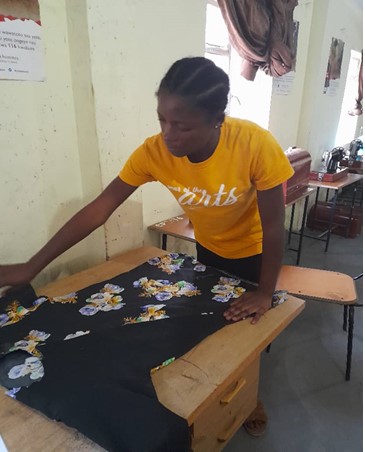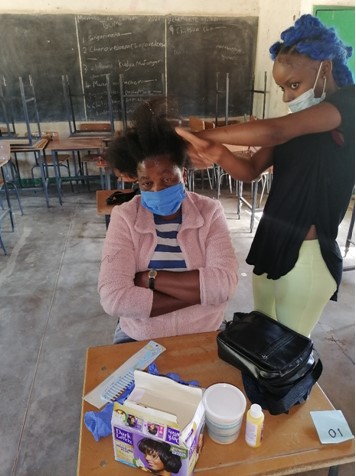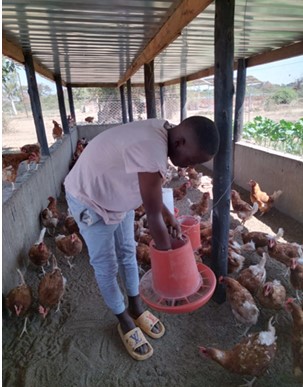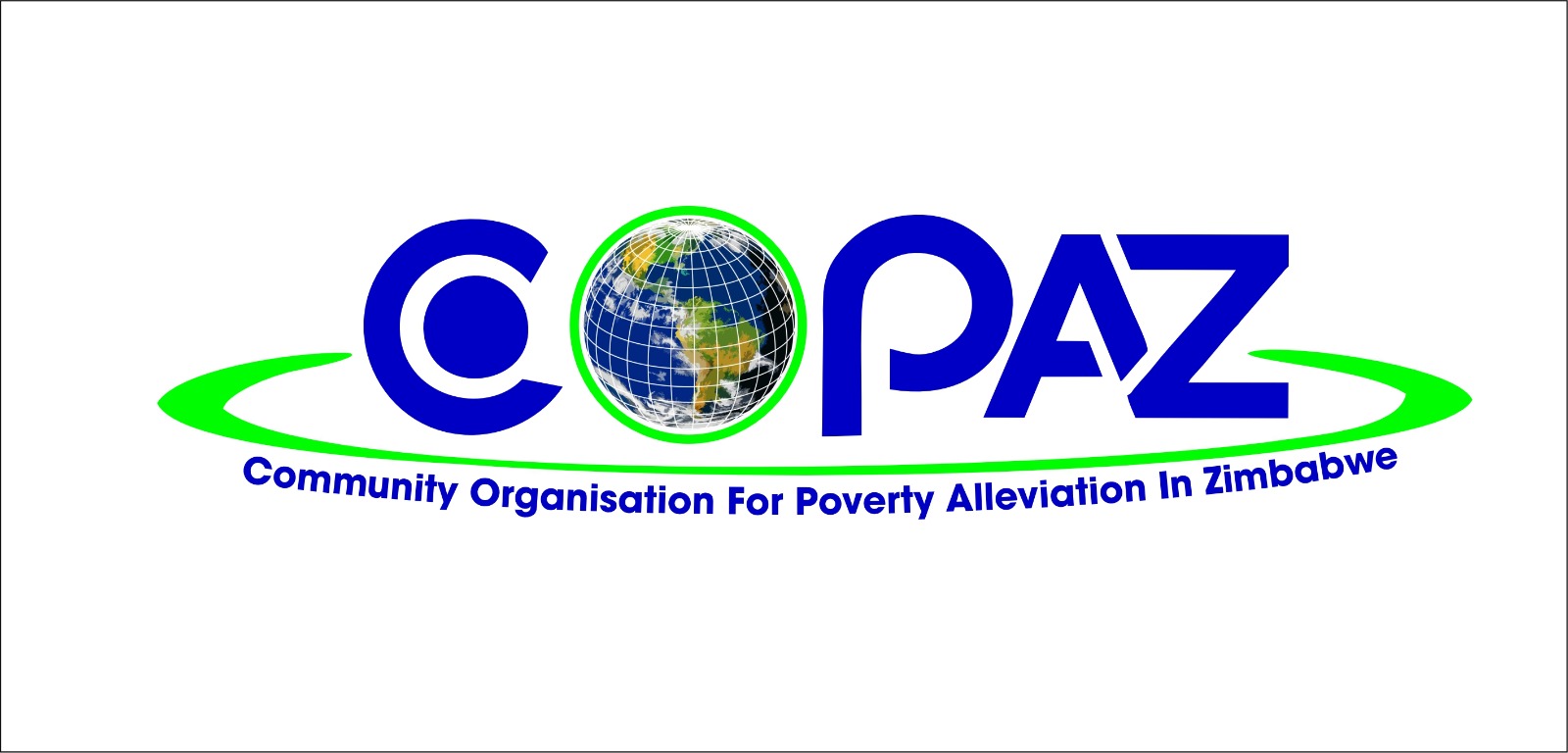Impact Stories
Project improves livelihoods in Tongogara Refugee Camp
Dorcas Kainga

Dorcas Kainga is a 19 year old young female refugee residing with her family in Tongogara Refugee camp in Chipinge district, in Manicaland Province of Zimbabwe. She came to Tongogara in 2010 as a young child and did her Primary and Secondary Education in the camp. She passed one subject at Ordinary level. Like other girls in the Refugee Camp, Dorcas was at risk of engaging in prostitution to earn a living or indulge in early marriage.
In 2021, Community Organisation for Poverty Alleviation in Zimbabwe (COPAZ) introduced a Sustainable Livelihood project using BMZ funds from Tdh Germany. The project trains young people in Entrepreneurship skills and Income Generating Activities (IGAs), provides them with start-up kits, and links them with markets. COPAZ mobilised the young people in the Refugee Camp and engaged the participation of stakeholders in the selection of project participants.
Dorcas was selected and enrolledin 2022 as one of the 25 young people for a three months training in tailoring where she acquired skills in garment making. After the training Dorcas was given start up kits together with other young people in her group. Currently, the group is operating in the youth Centre.
The project transformed Dorcas from an ordinary girl in the camp to a skillful young lady. So far she is realizing an average of USD30 every month. She uses the money to buy materials for the project and for daily consumption as well as assisting her parents to look after the family with food and other basic needs. “I want to thank COPAZ Livelihoods project for improving my standards of living and fostering resilience in me,” said Dorcas
Dorcas wants to perfect the skills that she acquired in order to fully satisfy her clients. She is also hoping to buy bigger and better machines and other related equipment necessary for her trade. With time she plans to open her shop where she would engage in tailoring activities as well as market the finished products. She also wants to train other young disadvantaged children in her community in order to empower them with the necessary skills that they can use to earn a decent living.
Kabanga Kabongo

Kabanga Kabongois a 26 year old single mother of two children who lives in Tongogara Refugee Camp in Chipinge district in Manicaland Province of Zimbabwe. She is the first born in a family of 8 members and she looks after her children and family. As a single mother the people in her community viewed her negatively and this affected her emotional wellbeing.
In 2021, Community Organisation for Poverty Alleviation in Zimbabwe (COPAZ) introduced a Sustainable Livelihood project using BMZ funds from Tdh Germany. The project trains young people in Entrepreneurship skills and IGAs, provides them with start-up kits and links them with markets. COPAZ mobilised the young people in the Refugee Camp and engaged the participation of stakeholders in the selection of project participants. Kabangawas selected and enrolled as one of the 20 young people for the cosmetology training. She gained skills that transformed her life from being dependent on handouts from donor Organisations to being self-reliant. After being given start up kits, Kabanga and her colleagues are now operating their small businesses in the youth Centre.She has also regained self-esteem and is now able to cope with her daily life. She is now able to generate at least USD40 a month from the project. “I use the money to support my children and to assist my mother to support the family. I also buy chemicals and other materials for use on my clients” said Kabanga. “I want to thank COPAZ Livelihoods project for improving my standards of living and fostering resilience in me,” said Kabanga
Dieodonne Byamungu

Dieodonne is an intellectually challenged youth who is residing in Tongogara Refugee camp. He is 20 years old. He did his Primary education at a local primary school but couldn’t get the best at the school because it did not have a resource centre for learners with intellectual disabilities. After having been assessed by psychologists from the Ministry of Education a recommendation was made for him to be transferred to a school in Mutare that had such a resource unit. He stayed at the Mutare School for a period of three years but had to come back to Tongogara School after it had established its own resource unit. This was done in order to enable him to learn in his environment with his own peers. The family failed to secure a place for him for skills training and as a result he had to continue at the local school but with little progress in terms of his skills development. There were fears that he would engage in wayward behavior or that he could be abused if left unattended. For the mother and the family members Dieodonne appeared doomed as they did not have resources to send him to local colleges that are into skills development and it was so painful for them to just watch him at home without any assistance being given to him.
In 2021, Community Organisation for Poverty Alleviation in Zimbabwe (COPAZ) introduced a Sustainable Livelihood project using funds from Tdh Germany. The project trains young people in Entrepreneurship skills and Income Generating Activities (IGAs), provides them with start-up kits, and links them with markets. COPAZ mobilised the young people in the Refugee Camp and engaged the participation of stakeholders in the selection of project participants.
Dieodonne joined the project in 2021 as one of the 28 young people who were trained by COPAZ in Livestock and egg production. Dieodonne was enrolled for the Livestock training programme. Due to his mental condition, COPAZ allowed his sister and brother to take turns to attend with him in order to take notes and explain to him during the learning process while he grasps the practical component of the training. He managed to go through the training to the satisfaction of the tutor and COPAZ staff.
Dieodonne acquired skills to run a poultry project and he is currently part of the group that is running the poultry project in the camp. Like the other young people in the project, he participates actively in cleaning the place, feed and water the chickens as well as assisting selling the eggs. He also gives a report together with his colleagues on the findings of the day. He is grateful that he got life changing skills during training and during the time he has been working with colleagues at the fowl run.
He and others in his group were given a startup kit in the form of 280 layers chickens, feeds and other related equipment. COPAZ constructed a Fowlrun for them and as a group they are already selling eggs to the local and external market. He is getting a monthly allowance shared from the profits accrued. He is happy to provide eggs to his family which he brings home on the day he is on duty. “The project has improved the nutritional and health status of our family,” said Dieodonne
The project has kept Dieodonne busy and away from the streets where he could have been exposed to all sorts of mischief and abuse. Despite his disability he has grown in confidence and is living a normal life just like other youth of his age. The mother and his siblings are grateful that the project has shaped him into a responsible young man.
